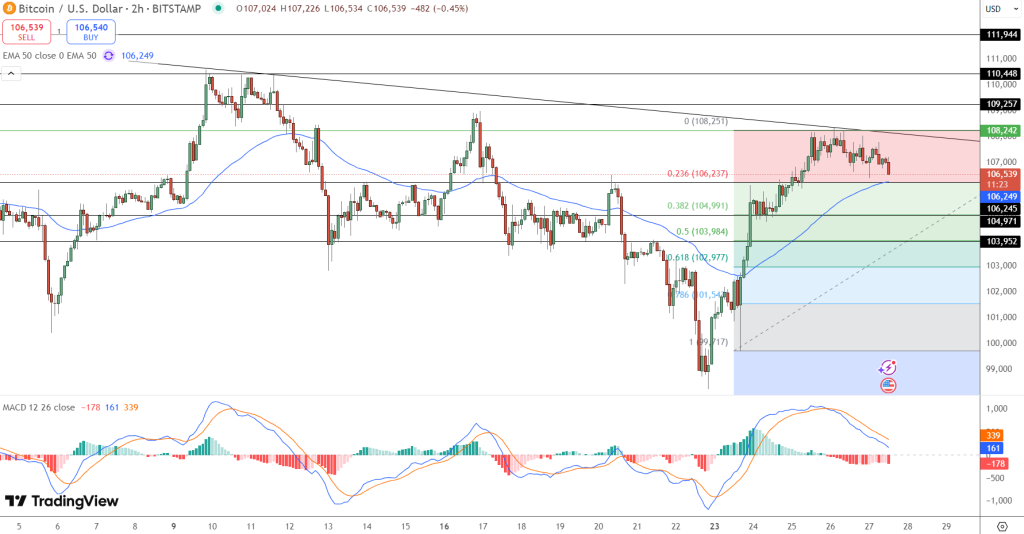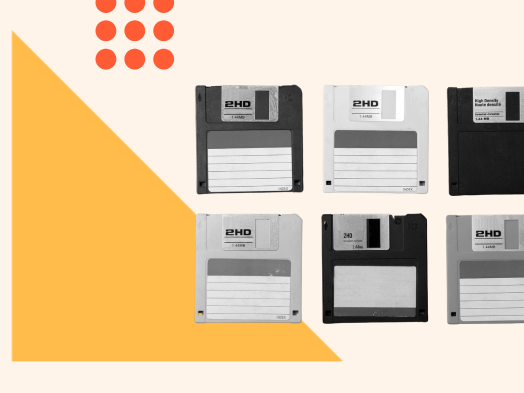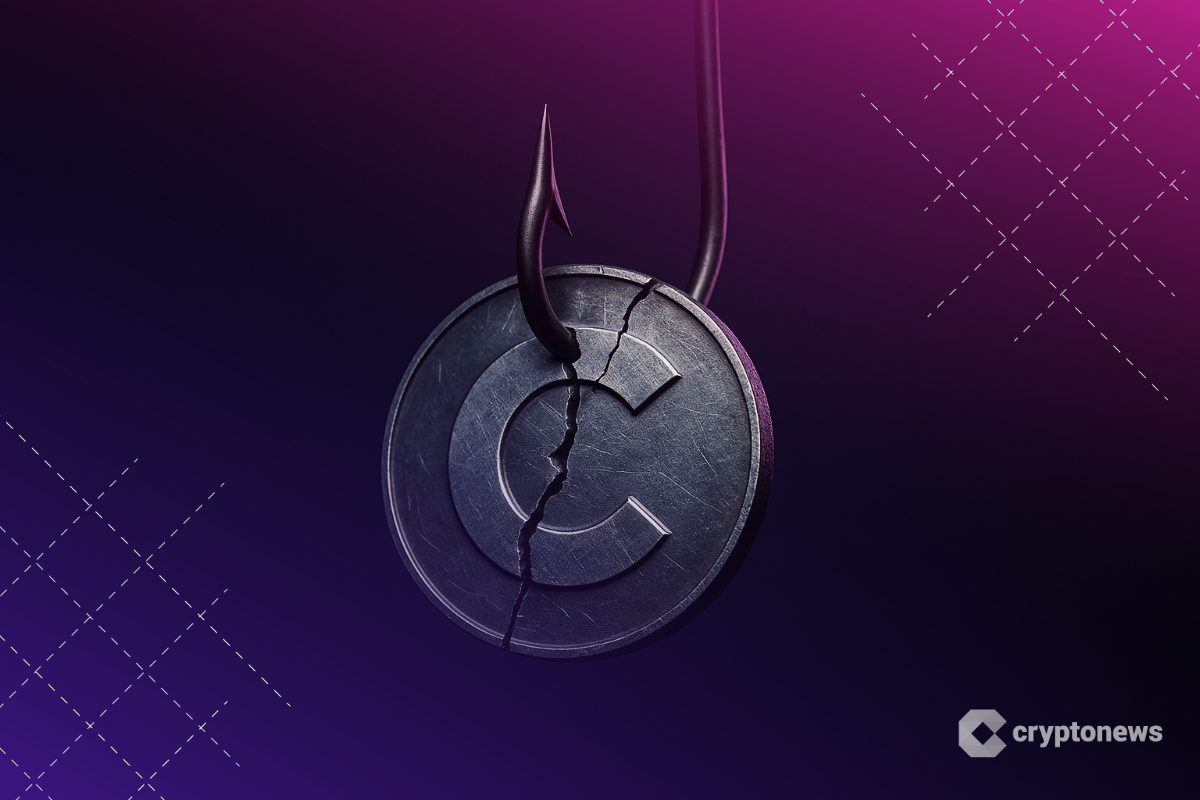In an ongoing poll on LinkedIn on the potential of AI in the next eighteen months 65% (so far) were excited about the potential, 24% were scared by it and 11% said it won’t really affect them. Right now, and for the foreseeable future we have a war in Ukraine, strains with the relationships on a global basis and a constant concern that supply chains will continue to put inflationary pressures on all of us.
We have just left Earth Month in April. In a poll by YouGov in 2022, nearly 40% of Americans believe that the earth will be uninhabitable with climate change. While in October of 2022, Gallup for the first time in thirty years in its national polling saw Americans less optimistic about the opportunities for their next generation than ever before. Just type in, “AI will kill us,” to google and you will see how in main line media; The New York Times, CNBC, Vox, Time and Fortune articles on the potential dark side, very dark side of AI are common in the last month.
A robot holds a newspaper during a demonstration during the World Economic Forum (WEF) annual … [+]
AFP via Getty Images
If 65% of us are positive about the potential for AI in the next eighteen months, why are mainstay media talking so negatively about it? Are those optimists crazy, or do they see something that much of mainline media seems to be missing? Are the 24% smarter than the 65% and are the 11% just ignoring reality?
AI is a growth mindset moment for every one of us. For those that design it and those that use and experience it. This is not a Luddite moment in the cloth manufacturing industry in a tiny county in the UK, (Leicestershire), because that only affected a small portion of the planet’s population at the time, maybe one hundredth of one percent. AI will affect every single one of us, every single moment of every day. It’s existential in nature and we need an existential reaction to how we leverage it.
Optimism without commitment and ways to make it happen won’t work …
getty
Optimism without commitment and ways to make it happen won’t work Negativism without told rational, or even having a sense of blissful lack of concern are not logical ways to handle this moment. Carol Dweck’s seminal, Harvard Business Review piece on what having a growth mindset actually means might be the clue to how we have to handle this tension around AI. “Those with a growth mindset see opportunities instead of obstacles, choosing to challenge themselves to learn more rather than sticking in their comfort zone. As Professor Dweck explains it: This growth mindset is based on the belief that your basic qualities are things you can cultivate through your efforts.”
Think of 10 issues we face as a race and see if you have a growth mindset or a fixed mindset for how to apply AI to solving them.
AI assisting nature
getty
The climate crisis needs more data and potential solutions
The world is full of hundreds of millions of microclimates. Applying AI to that data at a microclimate level is completely logical. Imagine having sensors on fields of tomatoes that can take that data and deliver water exactly to each plant at an optimal time. This could increase the yield by 20% or more. Then machines harvest those tomatoes and pack them into autonomous vehicles, 24/7/365 to get to local markets. The UN believes we will need to produce 60% more food by 2050 for a global population of ten billion. We don’t have a lot more land. AI could help feed us.
Our children’s future needs to be better than it is now
Imagine having a virtual assistant programmed to specifically help your child learn at home and at school based on best practices for a particular learning style or even the challenge they are facing. There are not enough teachers to do this but AI educational models and tools can easily do it. Imagine how much more optimistic we would be about our children’s future.
We have to manage global conflict early
Imagine knowing or having knowledge on something or the ability to resolve it before it becomes a major issue. AI is the only way to analyze, simulate and react to cyber-attacks of the magnitude we are going to see. It’s no longer a few nations that will attack us, it could be any group in the world. AI is a tool that can be used to defend and protect a way of life that others can attack, at will from nearly every dimension.
Genetic engineering
getty
We need to discover new pharmaceuticals
The mRNA vaccines were based on AI work with IBM. Un counted millions of lives were saved by the convergence of AI and the physical world. This need will increase more and more if we want everybody on the planet to have access to new medical protocols. As the world’s population gets older (think Italy and Japan), then we are going to need to discover, simulate and test even more new treatments.
We need to get things to difficult places
Look at zoox’s autonomous vehicles and a recent podcast for Forbes Insights with their founding CTO, Jesse Levinson. Imagine you want a taxi to come and get you at a very late time in a city. A Zoox’s taxi turns up, on its own using AI to navigate and drive you safely to your destination. This is an AI centered product by design and it opens up a whole new world of building vehicles (and on the sea) to get to and through difficult places like Tokyo Bay. Imagine the possibilities here for drones in fire services too, (Auterion).
We need more doctors
Everybody experienced the medical industry at its very best during the Covid pandemic. Virtual doctor visits, once a tiny nuance is now the norm for over half of us, even with specialists. These specialists can now see five to ten times more patients in a day. Now add AI into the mix for data review, even interaction with patients and you can get a scalable medical system, ready for the next pandemic. More importantly its already clear that AI can recognize skin cancer better than a human doctor can. Think of the possibilities for more diagnostic through put for MRI’s, scans, tests for all of us, even potential interactions for remote healthcare management (diabetes, etc.).
We need factories working 24/7/365, everywhere on the planet
We do not have enough humans to deliver on the idea of 24/7/365 factories. The idea of dark factories (all machine based) is an inevitability. However imagine having those close to the consumer because machines, driven by learning and sensing with AI could be placed right next to the customer.
AI working with power energy and sustainable resource environment technology.
getty
We want to use energy 50% more effectively
AI will do this at the grid level, our homes and inside complex new networks of energy creation (solar, wind, thermal). Think of another way without AI that these systems can work together from sensing, learning and managing systems in near real time.
We need to re-invent the supply chains we are so addicted to
Our insatiable need for near everything in the moment we want it is now the near norm. Supply chains are as complex as DNA. The more these systems (all these systems) work together in real time to find, move and deliver components or products at near real time speed the more that appetite for needing things now is solved. Only AI can handle and manage this complexity that Covid may well have made a norm.
We need machines to do things that we cannot do easily
We lack mineral resources to feed, house and supply the future ten billion on earth. Exploring very deep trenches in oceans or mining these resources cannot be done well, or at all by humans. Machines with AI brains, sensors, the ability to simulate and learn as they do this work will get more from the planet than humans ever can. The idea of autonomous mining driven by AI is where the world needs to go.
The truth of AI is that it is an uncomfortable combination of the virtual and digital experience with our physical worlds. The application of AI could well be dangerous, like the new movie, The Artifice Girl. But the core technologies demand that we lean in and are each active participants in this journey. The one question we should each be asking is, where is the opportunity to make a difference with AI?
Credit: Source link











